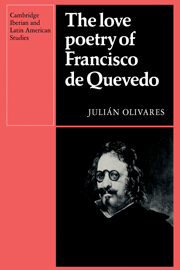2 - The conception of an ideal
Published online by Cambridge University Press: 05 November 2011
Summary
Courtly love can frequently be a source of amusement to modern readers. For the uninitiated it often conjures up the vision of a lavish display of stylized behavior and flowery language. The idea that sentiment can be formalized, made art, may seem strange, and most difficult to accept is the concept that love may be suffering and not pleasure. The notion of a love which, ultimately, does not seek sexual satisfaction may appear to some as unrealistic and even absurd’ Courtly love is difficult to take seriously, providing at best escapist literature and entertainment at the cinema. Yet when we do take it seriously, when we look for the ideals that gave it shape, we find that love was conceived as a civilizing force in a barbarous society. In his respites from battle, the medieval knight sought moral and cultural perfection through the pursuit of love. Valor depended not only on courage but also on spiritual refinement. In order to escape or overcome an ambience of barbarity, love needed to be formalized:
To formalize love is the supreme realization of the aspiration to the life beautiful … to formalize love is, moreover, a social necessity, a need that is the more imperious as life is more ferocious. Love has to be elevated to the height of a rite. The overflowing violence of passion demands it. […]
- Type
- Chapter
- Information
- The Love Poetry of Francisco de Quevedo , pp. 18 - 49Publisher: Cambridge University PressPrint publication year: 1983

